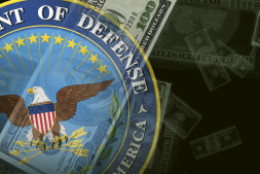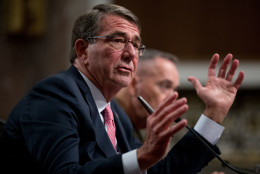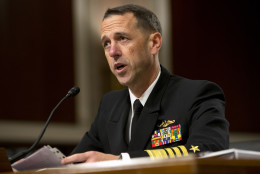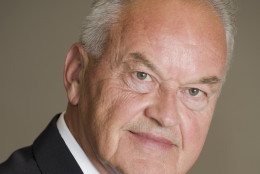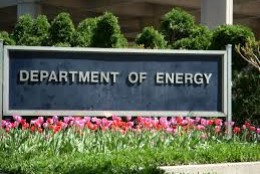Workforce Rights/Governance
-
The Defense Department now has systems up and running that allow lenders to instantly verify a potential borrower’s military status at the same time his or her credit record is checked.
November 11, 2016 When President-elect Donald Trump takes office in January 2017, what does that mean for the federal government? Find out on this week on Fed Access when Government Executive Staff Correspondent Eric Katz joins host Derrick Dortch. November 18, 2016
November 10, 2016-
The Office of Government Ethics finalized a series of sweeping changes to its executive branch ethics program days ahead of the upcoming presidential transition. OGE used nearly 40 years of feedback to write the new program, which strengthens ethics training for designated agency ethics officials and requires new political appointees to receive ethics training within the first 15 days of appointment.
November 03, 2016 -
Defense Secretary Ashton Carter announced a series of recruiting changes on Tuesday that he said would let the armed services recruit from a broader swath of the American population, rebuild lost ties with local communities and reduce growing misconceptions about military service.
November 02, 2016 -
The Fair Pay and Safe Workplaces rule suffered a setback the day before it was supposed to go into effect, as the Eastern District of Texas placed a preliminary injunction on it. This delays it from being enforced until the lawsuit challenging it has played out in court.
October 26, 2016 -
The Chief of Naval Operations is in charge of manning, training and equipping the Navy. And Adm. John Richardson, the current CNO, says that means civilians too. In a bit of an unusual step for a military service chief, Richardson issued his own framework for improving the health of the civilian workforce on Friday.
October 19, 2016 -
The inevitable has come to pass: a federal contracting association has legally challenged the Fair Pay and Safe Workplaces final rule.
October 13, 2016 -
The Office of Government Ethics has a new proposed rule that would exclude some federal employees at General Schedule 13 positions or below from having to automatically submit financial disclosures.
October 07, 2016 -
In most cases, government jobs are forever, but Senior Correspondent Mike Causey says there are two easy ways to get fired, especially this time of year.
October 05, 2016 -
R. Scott Oswald, managing principal of the Employment Law Group, will discuss what you can do to avoid getting suspended, fired, or fined because of violations of the no-politics-at-the-office law. October 5, 2016
October 04, 2016 -
The Office of Special Counsel is taking a step forward with a new, five-year strategic plan for the future. As more federal employees turn their cases to OSC than ever before, the agency said it's adjusting its priorities to better meet the demands of an increasing workload and persistent budget uncertainty.
September 30, 2016 -
Charlie Phalen has spent four decades in the personnel security business, most recently at Northrop Grumman, and before that, in top security positions at the CIA and FBI.
September 29, 2016 -
Beyond the headlines involving a new name for the B-21 long-range strike bomber, a doubling of the Air Force’s drone pilots and several new initiatives by the new chief of staff, there was an abundance of lesser-noticed news during the three days of events at the Air Force Association’s annual conference.
September 26, 2016 -
An Energy Department scientist told members of the House Science, Space and Technology committee on Wednesday that management sought to fire her for defending funding certain research during a congressional briefing.
September 21, 2016 -
The Air Force is set to begin training some of its enlisted members to fly aircraft next month — the first time it’s done so since it became a separate military service in 1947.
September 20, 2016

